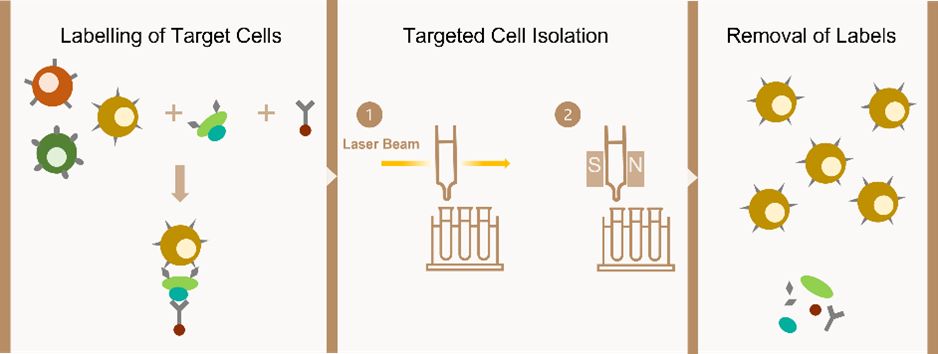Immunomics Services
T Cell Isolation Service
T cells are a key component of the adaptive immune system. The isolation of T cells helps to drive immunomics analysis of T cell-specific repertoire and subsequent applications such as the design of new vaccines, the design of new protein therapies, antigen discovery, autoimmunity, transplantation, and allergy. CD Genomics provides professional and reliable T cell isolation services to advance your immunomics-related projects.
Introduction to T cells
T cells are lymphocytes, born from hematopoietic stem cells and found in the bone marrow. Developing T cells migrate to the thymus in order to develop or mature. T cells are one of the important leukocytes of the immune system and play a central role in the adaptive immune response. One of these functions is immune-mediated cell death, which is performed by two main subtypes, including CD4+ helper T cells and CD8+ killer T cells.
- CD4+ T cells act as helper T cells (TH cells). The specific adaptive immune response regulated by TH cells depends on their subtype, which is distinguished by the type of cytokines they secrete.
- CD8+ T cells, also known as cytotoxic T cells, are cytotoxic, which means that they can directly kill virus-infected cells and cancer cells. CD8+ T cells are also able to use small signaling proteins called cytokines to recruit other cell types when initiating an immune response.
- Regulatory/suppressor T cells are responsible for regulating the body's immune response and often play an important role in maintaining self-tolerance and avoiding excessive damage to the body from the immune response. There are many different types of regulatory/suppressor T cells, with the most widely studied being CD25+CD4+ T cells.
- Memory T cells play an essential role in the reimmunizing response. However, no significant specific surface markers have been identified on the surface of memory T cells.
Applications of T Cell Related Immunomics Studies
T cell receptors (TCRs) have the potential to recognize epitopes derived from intracellular and cell surface antigens. The advent and application of high-throughput sequencing technologies offer the opportunity to study immune responses at an unprecedented scale. T cells are isolated for subsequent T cell-related immunomics studies, such as T cell epitope mapping, which can be applied to a wide range of protein datasets to generate exciting new discoveries.
|
|
|
|
|
|
Our Services
T cell associated immunomics research is a new field for addressing the interface between host and (pathogen) proteome, bridging informatics, genomics, proteomics, immunology, and clinical medicine. With our extensive experience in immunomics research, CD Genomics can provide professional T cell isolation services to provide reliable experimental material for your immunomics projects. Our team can isolate T cells from blood, bone marrow, and many types of tissues and organs from human, non-human primates, mice, and rats.
In addition to offering pan T cell isolation, we also offer a highly customizable isolation service for specific classes of T cells, including but not limited to the following.
|
|
|
|
|
|
Workflow of T Cell Isolation

Why Choose Us
| High Purity: the purity of the obtained cells reaches (90%-99%). | |
| Great Yield: the obtained rate is up to 90%. | |
| Low Impact on Cell Viability: the rate of viable cells is greater than 95%. |
Through in-depth collaboration and communication with our clients, CD Genomics helps you to solve difficult problems and bottlenecks in immunomics-related projects. We are committed to advancing research in immunomics. Please contact us for more information.
